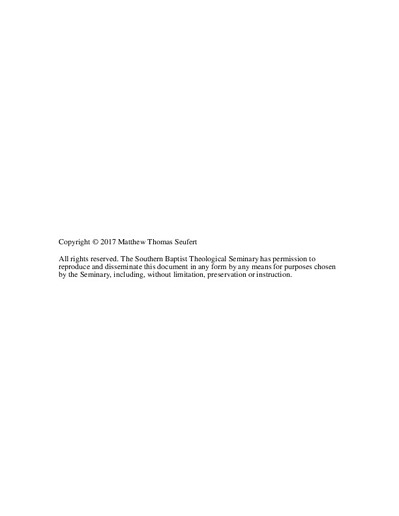Zechariah: Select Problems and Allusive Solutions
Subject
Bible. ZechariahAbstract
This dissertation interprets four particularly perplexing Zecharian texts (1:3, 1:11, 5:5-11, and 11) in light of allusions to other texts in order to exhibit the usefulness of an allusive approach to the interpretation of the book of Zechariah. In addition to providing new interpretations to these select texts, it discusses the issue of Zechariah’s method of allusion and the influence this should have both on the method of identifying allusions and interpreting them.
Chapter 1 gives a history of research on Zecharian allusion studies. Chapter 2 discusses the grammatical oddity of Zechariah 1:3a, “and you shall say to them,” and proposes that Zechariah intentionally abbreviates a fuller phrase, subtly demonstrating his reliance upon his prophetic precursors who uniformly use the full version of the phrase. Chapter 3 examines Zechariah 1:11, “all the earth is at rest and at peace,” and interacts with Al Wolters’ proposed allusion to Isaiah 14:7, affirming but reinterpreting it. Chapter 4 interprets Zechariah 5:5-11 based largely on an allusion to Jeremiah 3, which provides a solution to the much-debated identification of the ephah and the woman sitting in it. Chapter 5 examines the prominent allusions of Zechariah 11. It demonstrates that Zechariah 11 regularly reverses the promises made by earlier prophets (especially Isaiah and Ezekiel) and restates their judgments. The chapter engages mostly with Jeremiah 25, Ezekiel 34 and 37, and Zechariah’s phrase “to break my covenant with all the peoples” (Zech 11:10). Finally, chapter 6 categorizes the ways Zechariah utilizes his sources.

